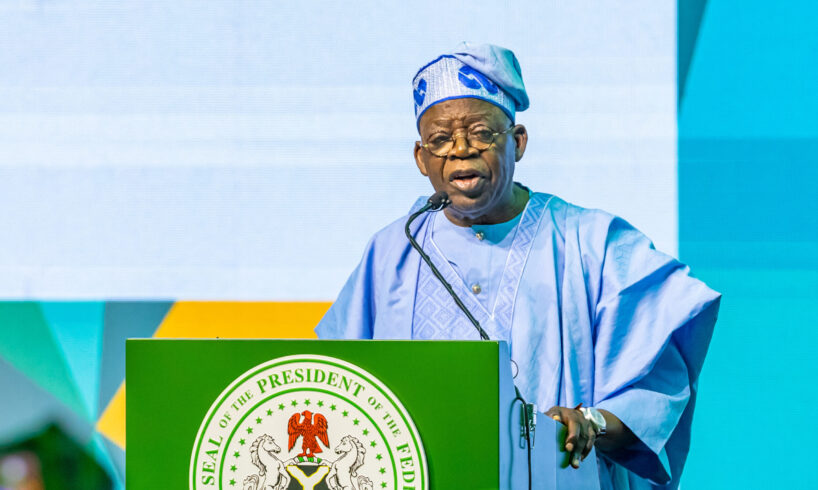
President Bola Tinubu has given anticipatory approval for a N4 trillion bond initiative aimed at addressing the liquidity shortfall in Nigeria’s power sector.
This was disclosed by the Special Adviser to the President on Energy, Mrs. Olu Verheijen, following a meeting between President Tinubu and representatives of power generation companies (GenCos) at the Presidential Villa in Abuja on Friday.
The development was also confirmed in a statement signed by the President’s spokesperson, Bayo Onanuga.
During the meeting with members of the Association of Power Generation Companies, led by former Niger State Governor, Col. Sani Bello (rtd), President Tinubu reaffirmed his administration’s commitment to resolving the financial challenges bedeviling the sector.
He acknowledged the historical liabilities inherited from previous administrations and assured the GenCos that his government would approach the issue with transparency and fairness.
Tinubu said, “I accept the assets and liabilities of my predecessors, and there is no question about that. But that acceptance must be on credible grounds. I need to wear the audit cap of verifiability, authenticity, and the fact that this inheritance is not a mere deodorant but a support structure for critical economic and industrial promotion.”
The President emphasised the need for patience from GENCOs and financial institutions, noting that government agencies are actively engaging audit and legal firms to scrutinise the claims.
“We are here. So market it to your other colleagues. Give us time to do verification and validation of the numbers,” he said.
While reaffirming his belief in a market-driven electricity sector, the President said the industry’s long-neglected legacy issues are now receiving the attention they deserve.
“This is a longstanding issue that is now being dealt with. I know how much we have been able to save on fuel subsidies. We introduced the alternative, CNG, to bring relief back to the people.”
President Tinubu also emphasised the government’s commitment to creating a stable investment environment and avoiding extreme measures, such as bank asset foreclosures, against the generation companies.
“To our friends in the banking sector, I ask that we avoid foreclosures. Sharpen your pencils, but keep an eraser handy. Let’s persevere together.”
Describing electricity as “the most important discovery of humanity in the last 1,000 years,” the President reaffirmed that access to electricity is fundamental to economic growth and human dignity.
FG carrying verified exposure of N4 trillion in debts to GENCOs
The Special Adviser to the President, Ms. Verheijen, attributed the liquidity crisis to “a combination of unfunded tariff shortfalls and market shortfalls” that has built up over a decade.
She stated that as of April 2025, the Federal Government is carrying a verified exposure of N4 trillion in debts to GENCOs, an accumulation dating back to 2015.
“We have since sat with 27 GENCOs—not all of them are here today—and reviewed their PPAs and gas sales agreements to understand the legitimacy of their claims. The GENCOs claimed about N4 trillion from 2015 to the end of 2023,” she said.
According to her, the Nigerian Bulk Electricity Trading Company (NBET)—the agency that contractually mediates between GENCOs and the government—has validated N1.8 trillion of these claims so far.
“Since that period, we have had N200 billion in unfunded subsidies that have accumulated the federal government’s liability.
“So, as of April 2025, the total exposure that we are carrying at the moment is N4 trillion,” she added.
However, Ms. Verheijen cautioned that the figure remains subject to downward revision, pending final validation.
“While there is an anticipatory approval of this N4 trillion bond programme, it is subject to negotiations and final settlement of agreements. Only the amounts that the federal government validly owes are the things that will make it into the issuance by DMO,” she explained.
The Minister of Power, Chief Adebayo Adelabu, commended President Tinubu for the attention given to the power sector, stating that the administration’s reforms have restored investor confidence and improved performance across the electricity value chain.
Adelabu said the Tinubu administration signed into law the Electricity Act, 2023, which decentralises and liberalises the electricity market. This was the first legislation signed by the President upon assuming office.
He noted that the administration has launched Nigeria’s first Integrated National Electricity Policy in 24 years to drive coherence in sector planning and delivery.
He disclosed that over $2 billion in new private capital has been attracted to expand electricity access nationwide. At the same time, the sector’s annual revenue has grown by 70 per cent—from N1 trillion in 2023 to N1.7 trillion in 2024—resulting in a reduction of government subsidy obligations by over N700 billion.
He added that installed generation capacity has grown from 13,000 MW to 14,000 MW, with an all-time peak generation of 5,801 MW and a record maximum daily energy delivery of 120,370 MWh, achieved on March 4, 2025.
According to him, there has been no national grid collapse in 2025, a direct result of interventions under the Presidential Power Initiative, which has added over 700MW of transmission capacity.
He reported significant progress in narrowing Nigeria’s metering gap through the N700 billion Presidential Metering Initiative, funded via FAAC, and the World Bank-supported Distribution Sector Recovery Programme (DISREP), which has already delivered 300,000 smart meters out of 3.45 million procured.
While acknowledging these strides, Adelabu cautioned that the sector is grappling with an urgent liquidity crisis that could undermine the sustainability of ongoing reforms and investments.
What you should know
In May, Nairametrics reported that President Tinubu will hold a meeting with the leadership of GenCos to address the over N4 trillion debt owed to them by the Federal Government.
Follow us for Breaking News and Market Intelligence.
Source





